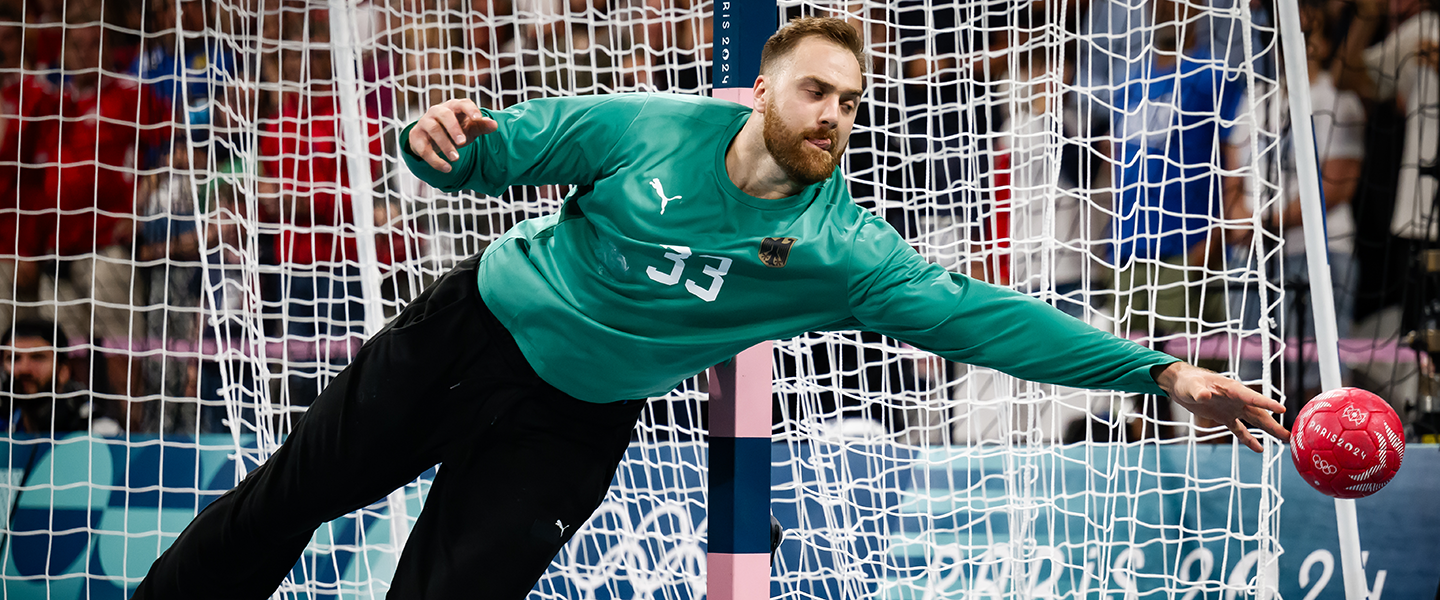A paid debt, a young core and a completed process: How Germany sealed their Olympics final berth
09 Aug. 2024

When Germany had last made the finals at the Olympic Games, at Athens 2004, their left back, Marko Grgic, was 11 months old. Goalkeeper David Späth and right back Renārs Uščins were two years old. Centre back Juri Knorr had just turned four years old.
But defying all odds, at Paris 2024, this Germany team finally confirmed the big vision their coach Alfred Gislason had for them. With their sixth win in seven matches in the men’s handball competition at these Olympic Games, 25:24 against Spain, Germany made the final.
It was a long time coming and just three years ago, at the 2021 IHF Men’s World Championship, they finished on the 12th place. They also came sixth at the Tokyo 2020 Olympic Games. One year later, they were again somewhere in the middle of nowhere, ending up on the seventh place at the EHF EURO 2022.
But Gislason, who assumed his position in 2020, being Germany’s bet for returning to the highest places in men’s handball, trusted the process. He forcibly made the squad younger, having a big pool to choose, after the Under-21 team secured the title at the 2023 IHF Men’s World Championship.
And here they are, qualified in the final of the Paris 2024 Olympic Games, after a fantastic display, probably the most consistent for Germany since they won the EHF EURO 2016, the last competition clinched by the European powerhouse.
From that team, which coincidentally also beat Spain in the final, 24:17, only four players are still in the current Germany roster. Goalkeeper Andreas Wolff, line player Jannik Kohlbacher, left wing Rune Dahmke and right back Kai Häfner are the ones that can seal the first gold medal for Germany since the maiden edition when handball was played in the Olympics, at Munich 1936.
“Alfred built the team that he wanted to build. The great young players like David [Späth], Renars [Uščins], Juri [Knorr], Luka [Witzke], they are now at the age that they already can help us. They have amazing potential. They have shown this throughout their ascension in several tournaments and already in Bundesliga,” said goalkeeper Andreas Wolff after the win against Spain.
Wolff is definitely the most important player of those four and probably the most influential in the current Germany team. Usually in the discussion about the top goalkeeper in the world, Wolff did not make any save in the match against France, in the quarter-finals, but displayed a fantastic performance in the semi-final against Spain, saving 22 shots for a 49% saving efficiency.
"Of course, it was tough for me to contribute nothing to the victory in the quarterfinal, so I'm particularly happy that I could pay my debt to the team. I spoke a lot to Mattias Andersson, our goalkeeper coach and it meant a lot that both him and our coach showed trust in me and said that they will not change everything. Our system works as a goalkeeper duo, with David, and we are doing a great job here," says Wolff.
It was not all about the number of saves, rather than their quality, especially several one-on-one saves in the last seven minutes of the match, when Spain did not score a single goal. And Wolff prevented four one-on-one shots, clearly making the difference.
"It was for sure one of the best games of my career, and one of the most important games. The Olympic Games are the toughest tournament you can play as a handball player. It's the biggest stage that you potentially can play on," added the 33-year-old goalkeeper.
Now, Germany have another shot at gold, after missing out at Athens 2004, when they had a star-studded team, full of stars, with Pascal Hens or Stefan Kretzschmar headlining their roster. It was not meant to be then, but now, Germany are aiming high, with a young team, with an average age of 27.1 years old.
This team will be surely challenged in the final, but with Gislason at the helm, the core is now there, as the future looks surely bright. One of the reasons is right back Renars Uščins, who has scored 48 goals at Paris 2024, and is only 22 years old. Against France, he was clutch, scoring 14 goals, including the last two goals in regular time, which pushed the match into extra-time.
In the semi-final, Uščins did not score in the first half, but had five goals in the first 11 minutes of the second part, applying the right pressure on Spain. And all of this while playing the biggest match of his life, trying to bring Germany into the final at Paris 2024.
“I was only two years old, right? It was 2004 when we last qualified for the final? I don’t remember anything,” laughs the right back, before pivoting back to the importance of the performance.
“It really feels amazing. I might not have had my best match, but we had some great moments in the match and Andi [Wolff] was pretty impressive with so many clutch saves,” concluded Uščins.

